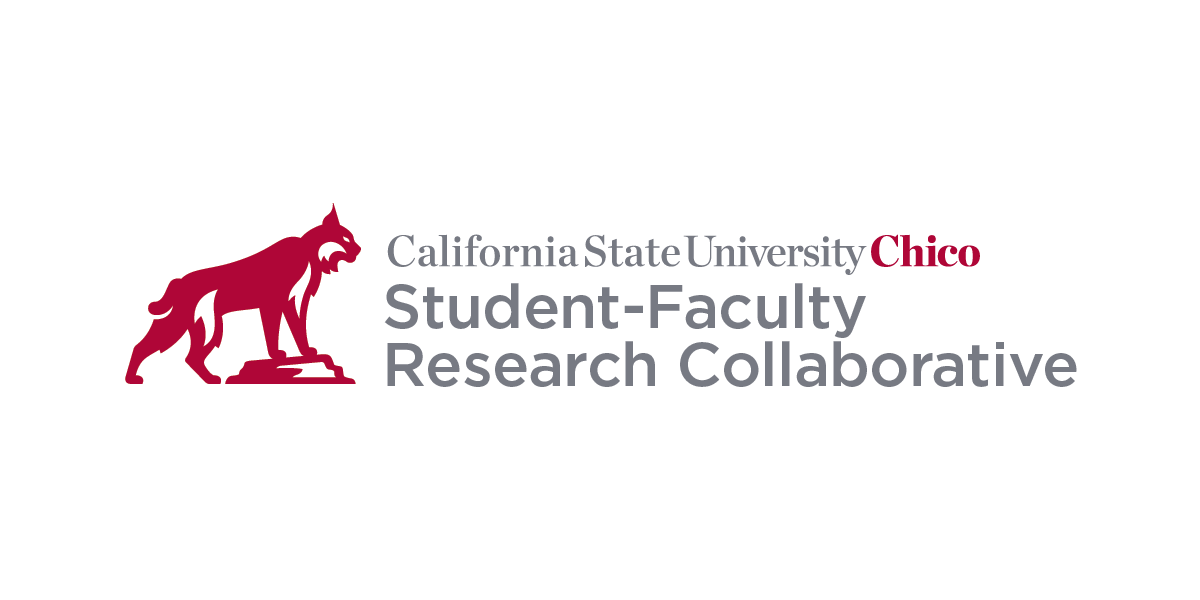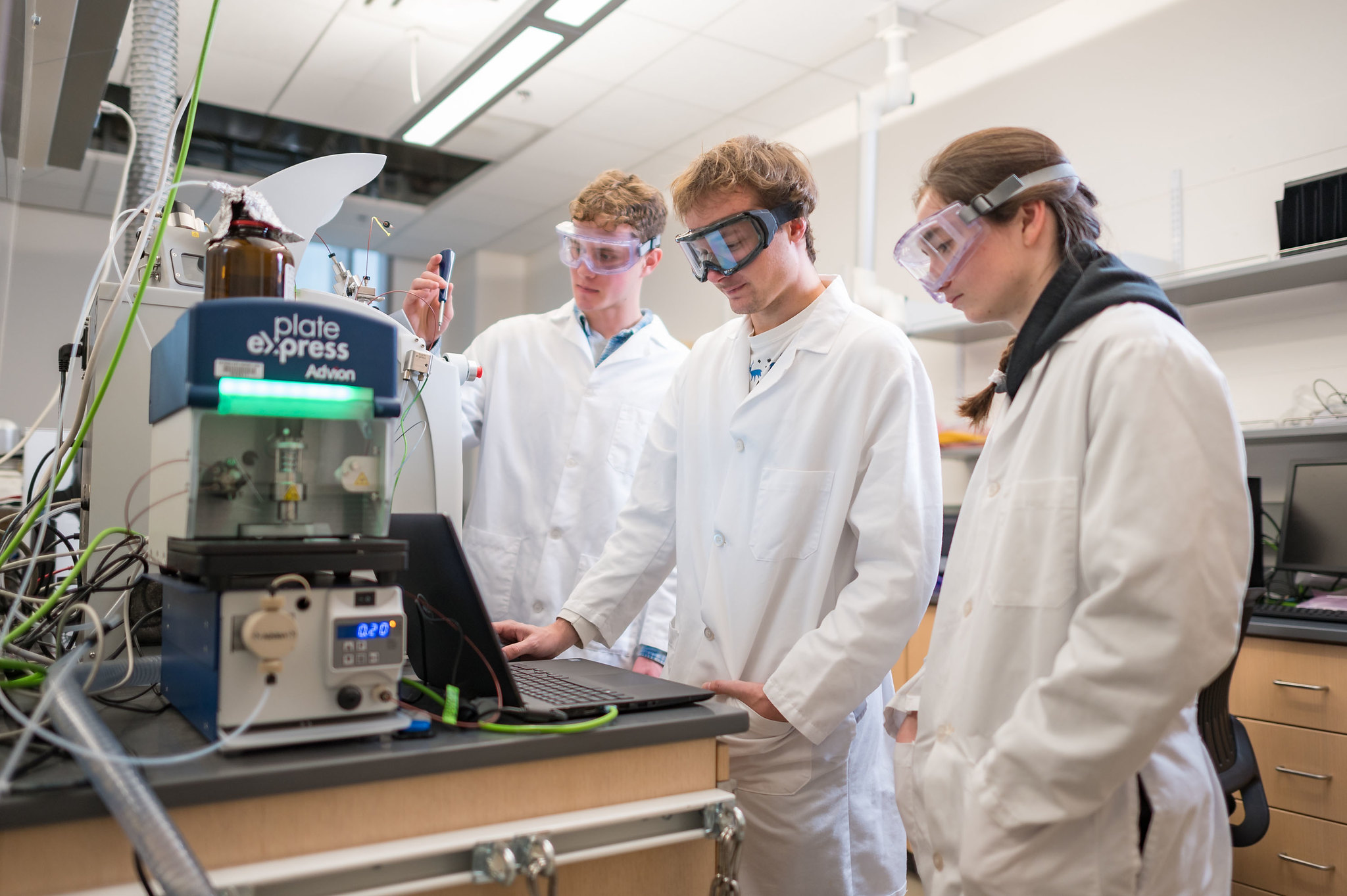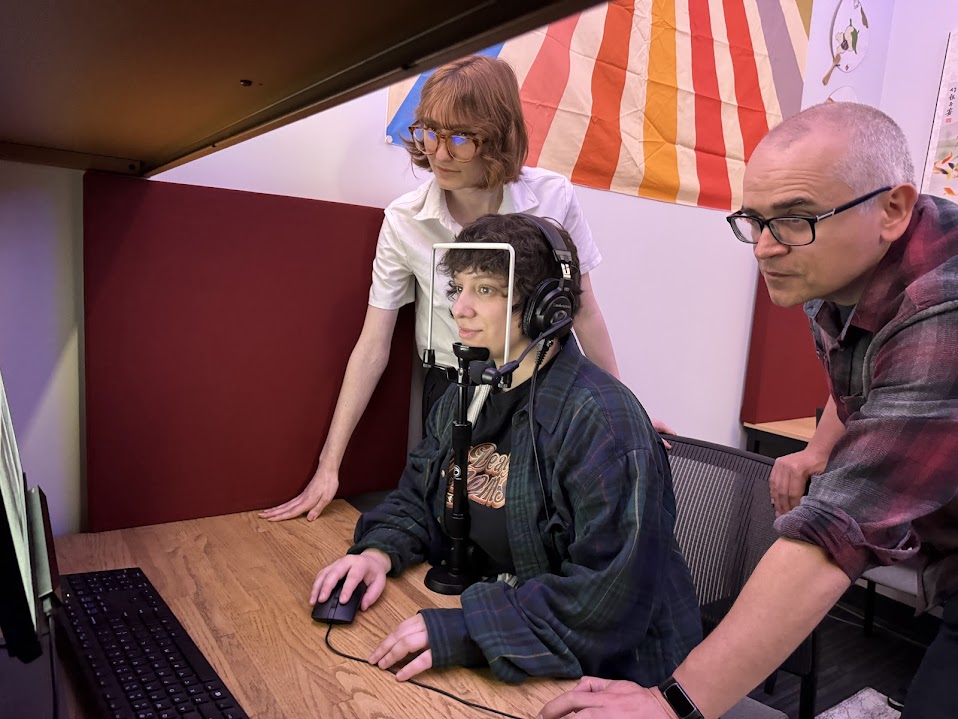
Student-Faculty Research Collaborative
Explore, discover, and be inspired through research and creative activities

Welcome! Our Student-Faculty Research Collaborative site offers resources to support your undergraduate and graduate research efforts, including information for students, faculty, and staff. Below you will find some of the excellent research taking place at Chico State. Navigate to the side menu to find information about research opportunities, including ways to fund undergraduate research through our Learning-Aligned Employment Program(opens in new window) (LAEP) funds.
Featured Undergraduate Research at Chico State
We’re celebrating undergraduate research with a rotating series, highlighting the diversity of research taking place on our campus. Below you’ll find our Q&A with Chico State faculty and students who share their current projects and what they’re learning from their faculty and student collaborations. The Learning-Aligned Employment Program (LAEP) provides funding for undergraduate research assistants. To learn more about the LAEP program, a financial aid eligibility award, email the LAEP team: laep@csuchico.edu

Linguistics Lab
Faculty: Dr. Paul Olejarczuk (English)
Undergraduate Researchers: Jay Mansfield & Sariah Torst
What is the focus of your research?
Dr. Olejarczuk (he/him/his): Our current study is part of a larger project about second language vocabulary learning involving a number of collaborators (Dr. Frieda Fichtner of Chico State, as well as Drs. Joe Barcroft and Mitch Sommers of Washington University, St. Louis). In previous work we discovered that when people are exposed to words from multiple dialects of German, they seem to learn those words better than if they came from a single German dialect. This is somewhat puzzling because the dialects in question are quite different from one another, so the learners have to deal with many different versions of the same word. In the current follow-up study, we are trying to understand the cognitive mechanisms behind the learning benefit conferred by this dialect diversity. One idea we are looking at is that acoustically variable (i.e. multi-dialect) pronunciations elicit more surprise, which in turn draws the learners’ attention, resulting in better encoding of the word in long-term memory. We are quantifying the degree of surprise by measuring pupil size with an eye-tracker as learners are trying to memorize the words.
What have you learned from the undergraduates who are working with you on the research?
Dr. Olejarczuk: I’ve always loved working with Chico State undergrads in the classroom, but this project provides an opportunity to interact with them in a totally different setting. Working in the lab is more informal and interactive, which has allowed me to get to know my Research Assistants (RA) and to think of them as junior colleagues. I believe this is a good way to think of students in general, but it is really facilitated by the research setting. My RAs have taught me that it’s okay to set high expectations because they will rise to the challenge. For someone who is used to being responsible for every detail of a research program, it can be difficult to cede any of that control to others. But my RAs have taught me that they can handle anything thrown their way. Their reliability, independence, and creativity have made my work much easier.
What are you learning while working on this project with your faculty mentor? How has this work enhanced your experience at Chico State?
Jay Mansfield (they/them): Working on projects in the Linguistics Lab has taught me how the concepts I have learned in my courses are applied in research. Currently, I am learning more about the software used in linguistics research and what it would be like to have a career in the field. Since beginning work as an undergraduate research assistant, I feel more connected to my peers and the professors in the English department. I think that students should explore their interests, no matter how small, because you never know what kind of opportunities will come from being curious.
Sariah Torst (he/she/they): Being a part of this research project has given me opportunities to perform speech analysis beyond what the classroom allows, and since Linguistics is my minor, I find that very exciting. It has definitely improved my Chico State experience, as being a part of work like this has given me a sense of pride. I’m really learning valuable skills, especially those that have to do with conducting research. I advise any undergraduate students who have research opportunities to take them. It’s invaluable for the learning experience, and if it’s in a subject that interests them, then I think that they’ll enjoy having the chance to get their hands dirty in their chosen field.

